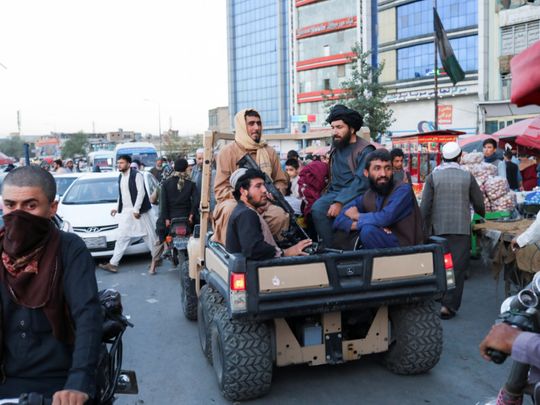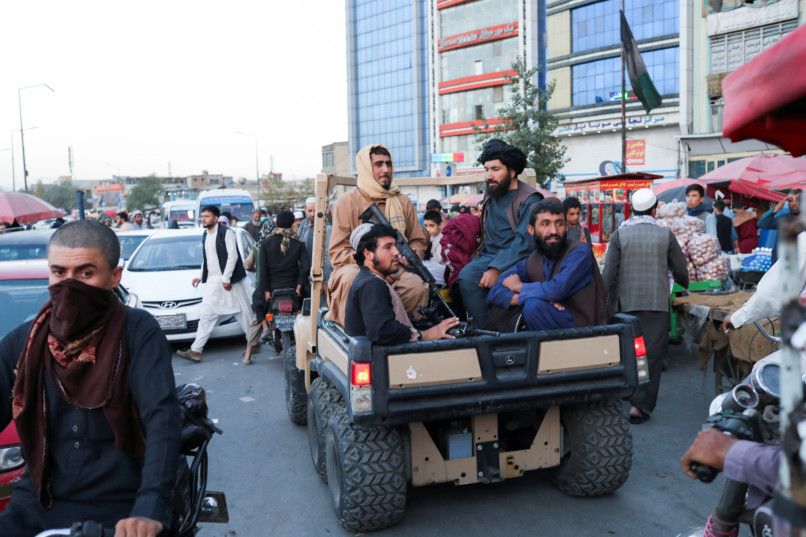
United Nations; The UN Security Council has unanimously approved a resolution stressing that Afghanistan’s new Taliban rulers need to establish an inclusive government with “the full, equal and meaningful participation of women and upholding human rights.’’
The resolution adopted by the UN’s most powerful body on Friday extends the current mandate of the UN political mission in Afghanistan for six months. It also stresses “the important role that the United Nations will continue to play in promoting peace and stability in Afghanistan.’’
The resolution, drafted by Norway and Estonia, essentially delays a decision by the Security Council on a new mandate for the UN mission, known as UNAMA, until March 17, 2022, giving members time to assess the actions of the Taliban government in the coming months.
In a joint statement to the council, Norway and Estonia said the resolution “sends a unified message that we stand behind the UN’s efforts in Afghanistan going forward.’’
The resolution ensures that the UN mission can continue to monitor and report on human rights, protecting civilians, violations and abuses against children, “and to support the full, equal and meaningful participation of women in all levels of decision-making.’’
Meanwhile, Russia and China’s leaders urged the new Taliban government to remain peaceful to its neighbours and combat terrorism and drug-trafficking.
Russian President Vladimir Putin and Chinese leader Xi Jinping spoke via video link at a summit of the Shanghai Cooperation Organisation (SCO), an eight-member group that promotes itself as an antidote to Western geopolitical dominance.
Putin said the organisation, holding its meeting in Tajikistan, should “use its potential” to “stimulate the new Afghan authorities” in fulfilling their promises on normalising life and bringing security in Afghanistan.
The hasty withdrawal of US-led forces had left behind “an open Pandora’s box full of problems related to terrorism, drug trafficking, organised crime and, unfortunately, religious extremism,” Putin said.
Partners should work with the new Afghan government, even if it was not representative, the Russian leader added.
China’s Xi said it was necessary to “encourage Afghanistan to put in place a broad-based and inclusive political framework” and to “resolutely fight all forms of terrorism” and live in peace with its neighbours.
Like Putin, Xi did not attend the summit held in the Tajik capital Dushanbe in person, addressing the meeting by video link instead.
Moscow and Beijing have moved to assert themselves as key players in Central Asia, after the United States’ hasty retreat from Afghanistan and the Taliban’s takeover of the country.
China shares a 76-kilometre-long (47 mile) border with Afghanistan.
Countries allied with Russia and China were holding a series of meetings in Dushanbe this week.
‘Opportunity to end war’
Summit host Tajikistan has been particularly alarmed by the Taliban’s return to power, with strongman leader Emomali Rakhmon complaining of a build-up of militant groups along its 1,357-kilometre border with Afghanistan.
Rakhmon at the SCO summit called for “a reliable security belt around Afghanistan (to prevent) the potential expansion of terrorist groups”.
Pakistan’s Prime Minister Imran Khan, however, hailed “a rare opportunity to end 40 years of war in Afghanistan,” while also urging the Taliban to ensure representation of all ethnic groups in its government.
Moscow has been cautiously optimistic on the Taliban since it came to power last month after a series of lightning offensives across Afghanistan.
Nevertheless, the Kremlin has said it is in no hurry to recognise Afghanistan’s new authorities, and is monitoring their fulfilment of pledges to curb drug trafficking and fight terrorism.
Other founding members of the SCO are former Soviet Central Asian states Kazakhstan, Kyrgyzstan, Kazakhstan, Tajikistan and Uzbekistan. India and Pakistan joined the bloc in 2017.
The Dushanbe summit saw SCO members back long-time observer Iran’s future membership.
Iranian Foreign Minister Hossein Amir Hossein Amir-Abdollahian said joining the bloc would have an “important impact” on Tehran’s cooperation with the countries.
Separately Iran’s foreign ministry said Tehran would be hosting in October the latest four-way ministerial meeting on Afghanistan involving Iran, China, Russia and Pakistan.









